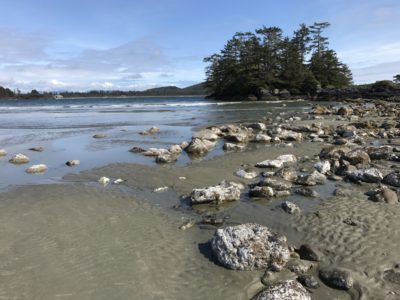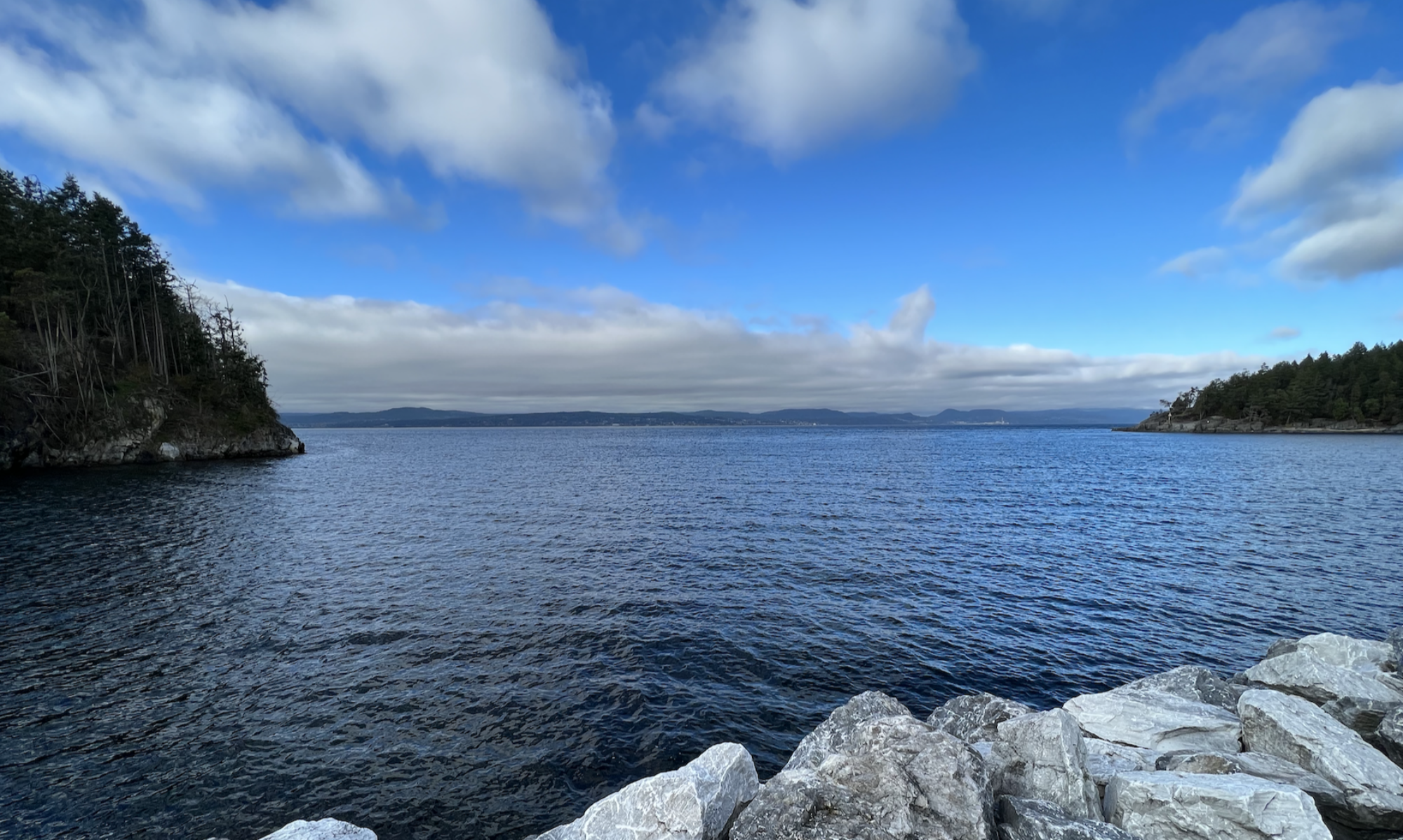
Last week at The Circle Way Tofino (Chesterman Beach, above), my teaching colleague and friend Amanda Fenton shared the passage below. It is from Richard Wagamese. Wagamese is Ojibwe, a Canadian author and journalist who died earlier this spring.
The beginning of wisdom is the same as its attainment: wonder. The truest statement in the world is “you never know.” There is always something to evoke wonder, to wonder about, because this world, this life, this universe, this reality is far more than just the sum of its parts. Even the slightest detail contains much more. The overwhelming awe and wonder we feel teach us more than we can ever glean or come to know of things. In the presence of that wonder, the head has no answers and the heart has no questions.
I was moved by the part, “the truest statement in the world is ‘you never know.'” It had particular relevance in this context of working in the Nuu Chah Nulth region on Vancouver Island in Canada. Kelly Foxcroft Poirier and her sister Dawn Foxcroft shared many insights with us that were drawn from their indigenous heritage. This included the statement that “for our people, everything is contextual.”
Ah…, there is something that I was looking for. The appreciation and commitment for the subjective, the contextual, and the relational. It’s a contrast to the so much dominant contemporary pattern of the objective, the isolated, and the individual. Any time you can find just a few words that encapsulate a couple of decades of searching — well, that’s a good day. That’s what was sparked for me in “you never know.”
Wagamese’s life is itself an important story. On its own, and for the pattern that it represents in the last century of indigenous, First Nations life and culture taken by European settlers. From Wikipedia, these paragraphs also moved me.
Wagamese described his first home in his essay “The Path to Healing” as a tent hung from a spruce bough. He and his three siblings, abandoned by adults on a binge drinking trip in Kenora, left the bush camp when they had run out of food and sheltered at a railroad depot. Found by a policeman, he would not see his family again for 21 years. He later described the adults in his family. “Each of the adults had suffered in an institution that tried to scrape the Indian out of their insides, and they came back to the bush raw, sore and aching.” His parents, Marjorie Wagamese and Stanley Raven, had been among the many native children who, under Canadian law, were removed from their families and forced to attend certain government-run residential schools, the primary purpose of which was to separate them from their native culture.
After being taken from his family by the Children’s Aid Society, he was raised in foster homes in northwestern Ontario before being adopted, at age nine, by a family that refused to allow him to maintain contact with his First Nations heritage and identity. Of this experience he wrote: “The wounds I suffered went far beyond the scars on my buttocks.” He was moved to St. Catharines, Ontario. The beatings and abuse he endured in foster care led him to leave home at 16, seeking to reconnect with indigenous culture. He lived on the street, abusing drugs and alcohol, and was imprisoned several times.
He reunited with his family at 23. After recounting his life to this point, an elder gave him the name Mushkotay Beezheekee Anakwat – Buffalo Cloud – and told him his role was to tell stories.
The truest statement — you never know. What an invitation to essential wonder that can and does do wonder in human beings being together.

